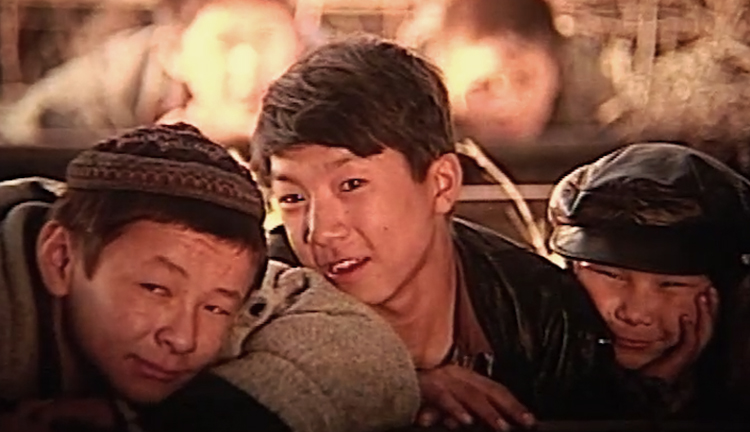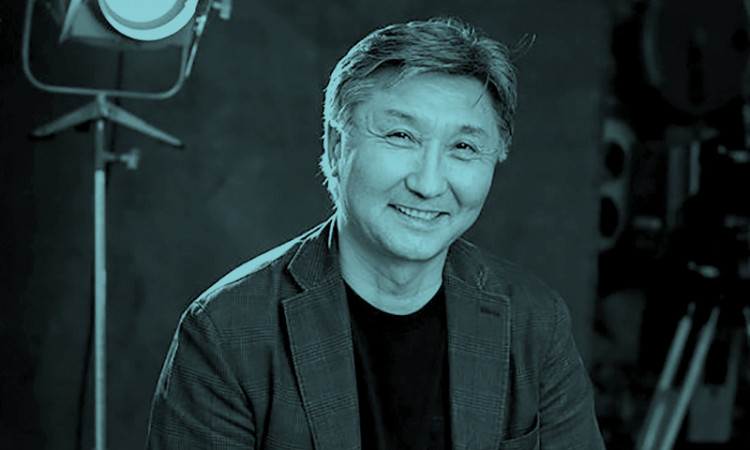Three Brothers

May 01, 2020 - August 05, 2020
Three brothers live in a small village located near a military airfield and a cemetery for old steam locomotives. At one time, these old steam locomotives traveled to an amazingly beautiful lake – now they will serve as targets for aircrafts. An old man's stories arouse the imagination of the brothers, provoking dangerous outings into the Zone.
Three Brothers (2000) S. Aprymov
Three Brothers by Serik Aprymov is the story of three brothers living in a Kazakh village near an airfield. The film is filled with rural life scenes, but at the same time it is rich in legends and myths.
The film characters, listening to the stories of an old local driver, dream of getting to the mythical lake he speaks of and even start a number of adventures to achieve this goal. Gradually, the existence of the lake is believed in not only by the children from the village depicted in the film, but also by the viewer himself. The old man also initiates children into the secrets and details of relationships with the opposite gender, and as he is their only companion to discuss the topic of puberty, his figure appears as a guide between childhood and adulthood.
The influence of the French new wave is evident in the director`s cinematic language. Working with non-professional actors and applying the features of nature cinematography and documentary techniques in most of Aprymov`s films, these practices give a sense of truthfulness to the events. Although Aprymov himself says that all seeming documentality is the fruit of fantasies and visions, "the paradox is that people take my absolute invention for the documentary truth."
Interview
Riksiev Mukhiddin, CCA LAB participant
- Every filmmaker, in his films, somehow answers the question: "What is a movie?” What questions do your movies answer?
My films are my view of the surrounding reality. Without admixture, without propaganda for the sake of power, without lies and without the boldness to have "your own dream".
- What is the significance of criticism of everyday life in your films?
The criticism of everyday life in my films has nothing to do with the criticism of everyday life by Henri Lefebvre. I just want to emphasize the absurdity of the existence of my characters, in those realities in which the ordinary citizen believes firmly and inexorably.
- When does the movie start (meaning the distinct feeling that a movie is being born)?
The first birth is during editing, and the second is after reshooting and color editing.
- Do you focus on documentaries or surrealism when creating a film?
Rather, the surreality of my films arises from a mix of realism and absurdity, i.e. stage realism is raised to the point of absurdity, but not in all scenes.
- What do you think the French new wave brought to the film industry?
In fact, the French new wave was just one of the cinematic movements of the 1950s and 60s that refreshed the language of cinema, in particular its structure. Even before the new wave there were English angry young people films. But the French new wave was very popular.
- Does the storyline of the Three Brothers film have an analogy in movies?
According to the story, children grow up without parents and believe the old man`s fairy tales. What does this mean? The plot of the film was inspired by the parables of Khoja Nasriddin.
- In your films, you often refer to the period of growing up, the confrontation between adults and children. Do you consider the process of growing up the most important?
Yes, of course. In the early years, a person matures, his dreams are formed. Then, a person spends his entire life trying to make his childhood dreams come true.
- Why did you choose this area for the film?
I am convinced that the landscape is projected, somehow synchronized with the personality of the filmmaker (as an artist). This is his dominant mental state - this is the landscape of the artist`s soul.
- What books influenced your artistic thinking?
Chekhov`s short stories and novellas, The Stranger by Albert Camus, Light in August, The Parable, The Mansion by William Faulkner, Nausea by Jean-Paul Sartre.
- Three of the greatest filmmakers?
Michelangelo Antonioni, Jean Vigo, Federico Fellini.
